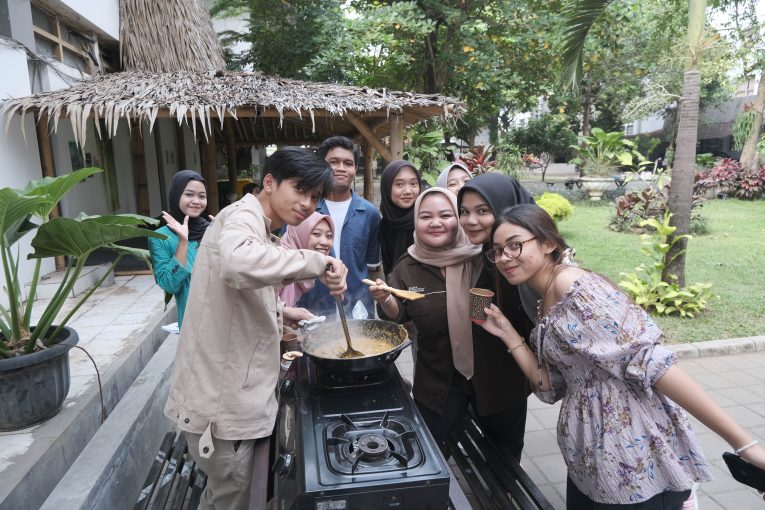
On Saturday, June 8, 2024, from 9:10 AM to 1:00 PM, undergraduate anthropology students from various cohorts and students from other study programs who took cross-departmental courses in anthropology participated in a rendang cooking event at the Selasar Soegondo Building, Faculty of Cultural Sciences, Universitas Gadjah Mada (UGM). This event was part of the Sumatra Ethnography course, which discusses Minangkabau culture, and aimed to instill respect and appreciation for cultural differences and ancestral heritage. The event was directly guided by the course supervisor, Agus Indiyanto, S.Sos., M.Si., who has ethnographic research experience in Minangkabau.
Rendang is a traditional Indonesian dish originating from Minangkabau, West Sumatra, known for its long cooking process to achieve rich flavors and tender meat texture. In this event, the rendang cooking process was done using a quicker method with two stoves: one for cooking the meat and the other for cooking the coconut milk, which would later be combined. The basic spices for cooking rendang were provided by the committee, but the students had to bring their own cooking utensils and were divided into seven groups, each consisting of 10-11 people.
The cooking activity began with a briefing from Agus Indiyanto about the ingredients and the method of cooking rendang. After the briefing, the students took the necessary ingredients and started the cooking process in their respective groups. Each group was free to innovate by adding their own additional spices, resulting in different rendang variations from each group. During the cooking process, the lecturer moved around to monitor and provide guidance to each group. Once finished, the rendang was presented to the lecturer for evaluation based on appearance and taste.
This quicker cooking process demanded a highly systematic method. Many groups failed because they did not stir the rendang continuously, even though one of the secrets to delicious rendang is the proper cutting technique and long cooking time. According to Agus Indiyanto, through this event, students became more understanding and appreciative of traditional food. Despite the significant effort required, this activity aimed to teach appreciation for cultural differences by experiencing firsthand how challenging it is to make traditional dishes.
Author: Afif Naufal Widiadi

